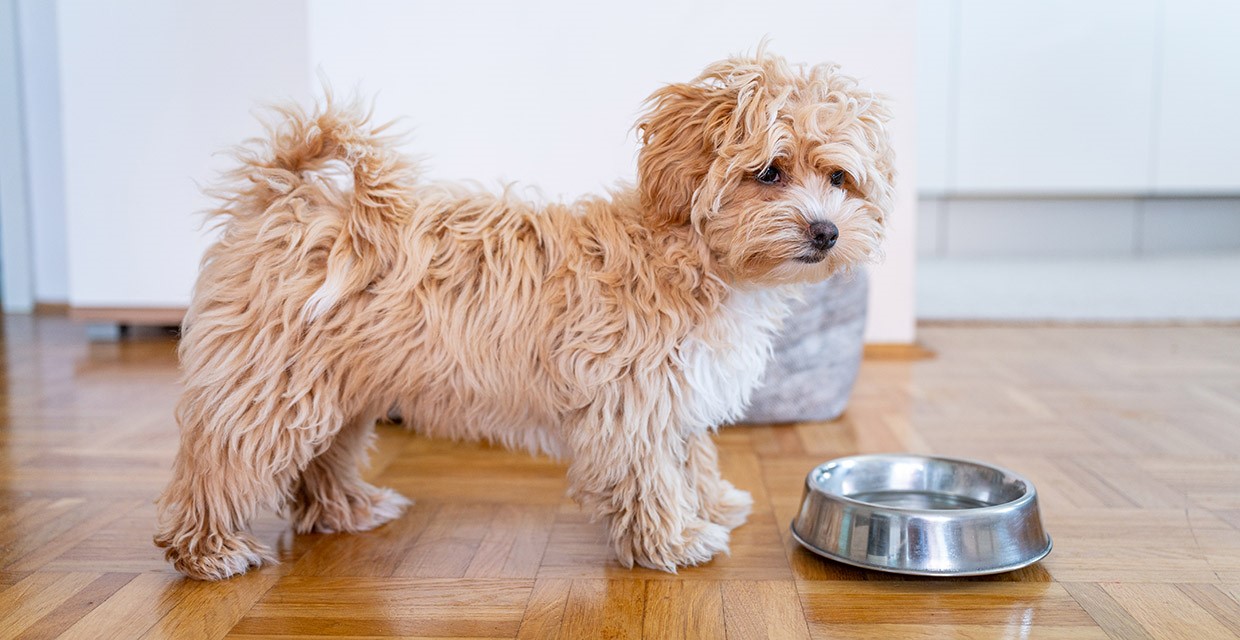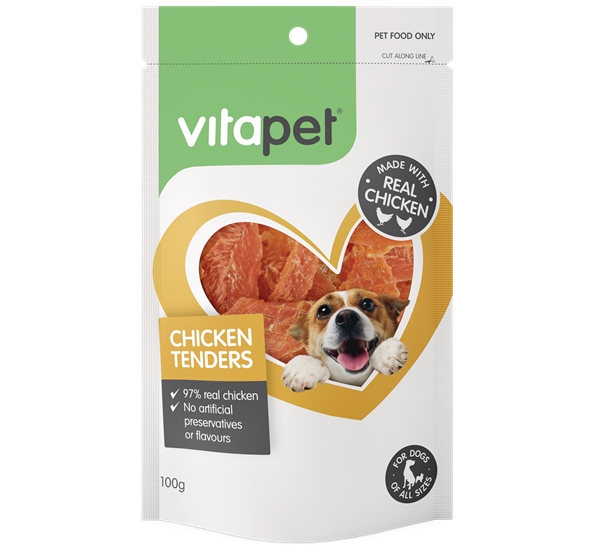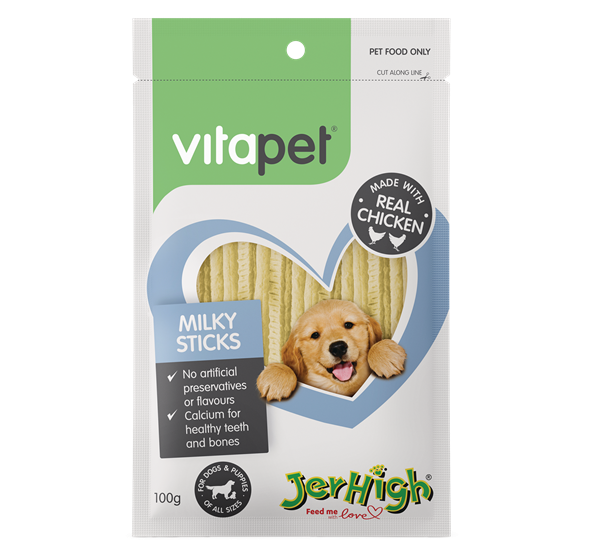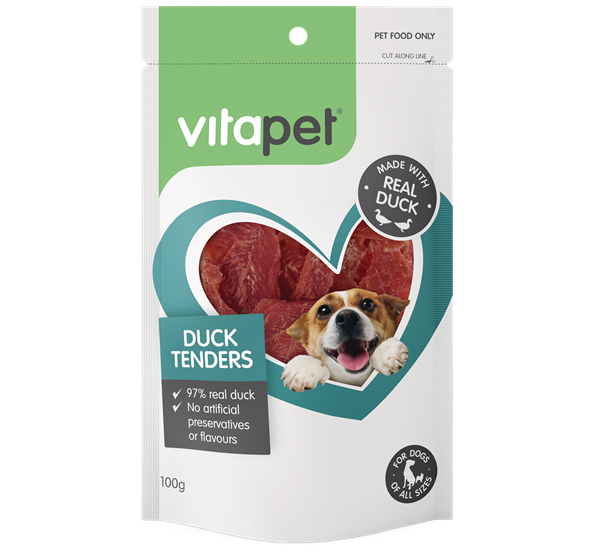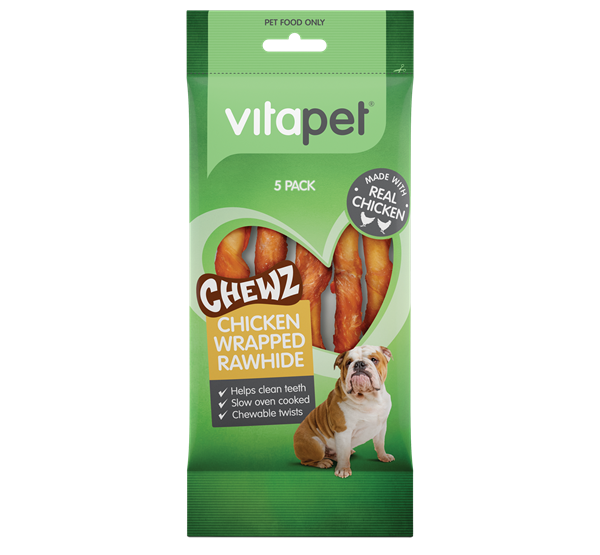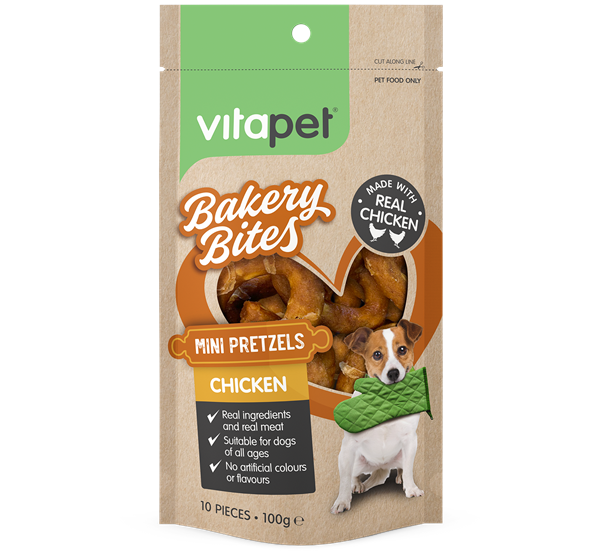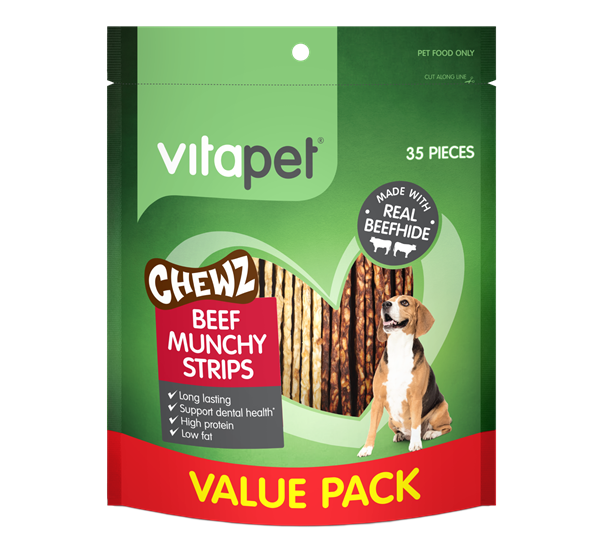Did you know some puppy breeds grow so fast, their energy requirements can be up to three times that of an adult dog? That’s why in addition to giving them all your love and attention, they deserve the very best at mealtime. Here’s what you should know about providing your puppy with a healthy and balanced diet.
Puppy vs adult dog food
For new pet parents, it’s a common question: Does my puppy really need puppy-specific food? Well, the answer is yes.
In short: we feed puppies different food from adult dog food for the same reason we feed human babies different food.
For one, their digestive tracts aren’t fully developed, which makes it harder to process adult food, and secondly, it doesn’t provide the right nutritional requirements for a growing being.
Puppy foods should have a strict calcium to phosphorus ratio, which varies slightly between the sizes (i.e. a small breed pup will require a slightly different ratio from a large breed pup). And it’s this ratio which is critical, not just the sole presence of calcium in their food. If you were to simply add calcium to an adult dog food at the wrong ratio, your puppy could develop bowed legs and other skeletal abnormalities.
There’s also a difference in energy levels and ingredient composition.
Puppy food is generally higher energy and will have higher fat levels in the blends.
Adult dog food, on the other hand, might be leaner with lower energy requirements.
So to support their rapid growth and immune systems, it’s best to feed high-quality, specially formulated puppy food.
The importance of protein and real meat
Protein is essential for the growth and development of puppies and kittens, dogs and cats. Just like in us, protein supports their everyday body functions and in times of stress or extraordinary performance (e.g. when running long distances or giving birth), protein levels need to increase to help their bodies regenerate.
But not all proteins are equal, which is why it’s important that real meat tops the ingredient list of your dog’s food, rather than plants or vegetables.
How often do I need to feed my puppy?
Puppies need to be fed more frequently than adult dogs. Ideally three times a day until six months of age, then twice daily until they’re a year old. After that, you can feed them once or twice a day, depending on your dog’s preference.
How much to feed depends on their breed and size.
Usually, the dog food manufacturer will provide some guidance on their packaging. For more tailored advice, you can always check with your local vet.
How long should I feed a puppy-specific diet?
How long to feed a puppy diet can vary between breeds. Generally, smaller breeds can switch to adult food earlier, at around 12 months of age, as they have a shorter growth period. In large breeds, it’s usually recommended to continue with puppy food until they’re 18-24 months of age.
When making the transition to adult food, introduce the new food slowly over a few weeks by mixing it with the puppy food and gradually increase the ratio.
And don’t forget: your pup always needs access to fresh, clean water.
Visual signs of good puppy food
After a few weeks of feeding good quality puppy food, the benefits should soon become visible. They can include but are not limited to:
- A shiny coat
- Firmer, regular stools
- Less gas
- An overall happy and healthy puppy.
As a new puppy parent, you can't underestimate the power of feeding a high-quality, balanced diet. Formulated specifically to support your puppy’s development, a good puppy food helps them grow confidently into a healthy and happy dog – and your friend for life.











